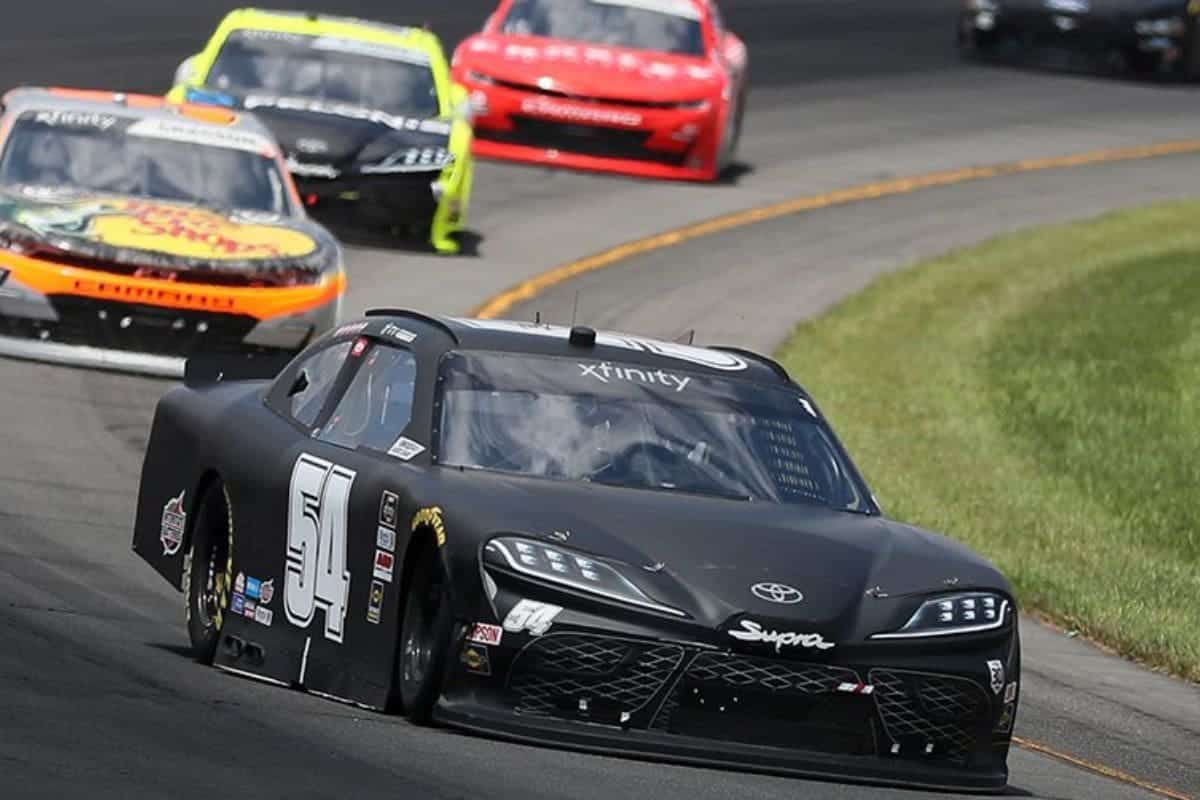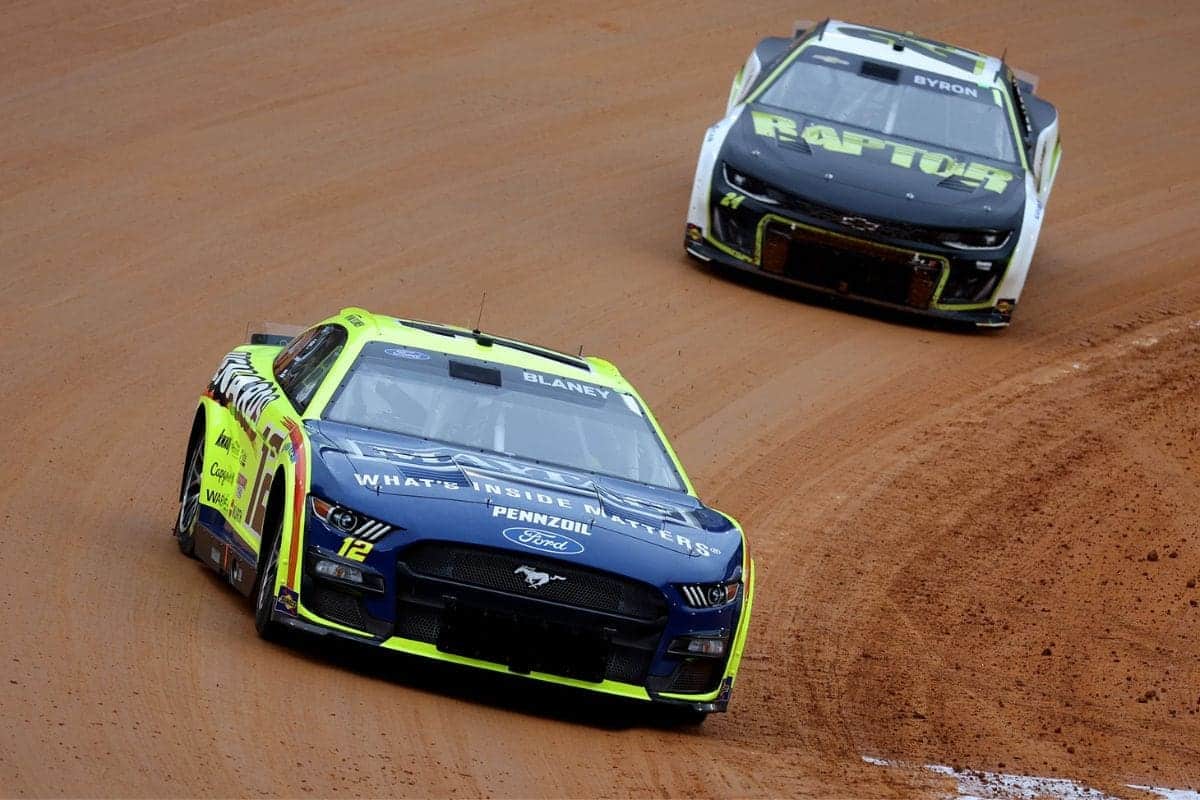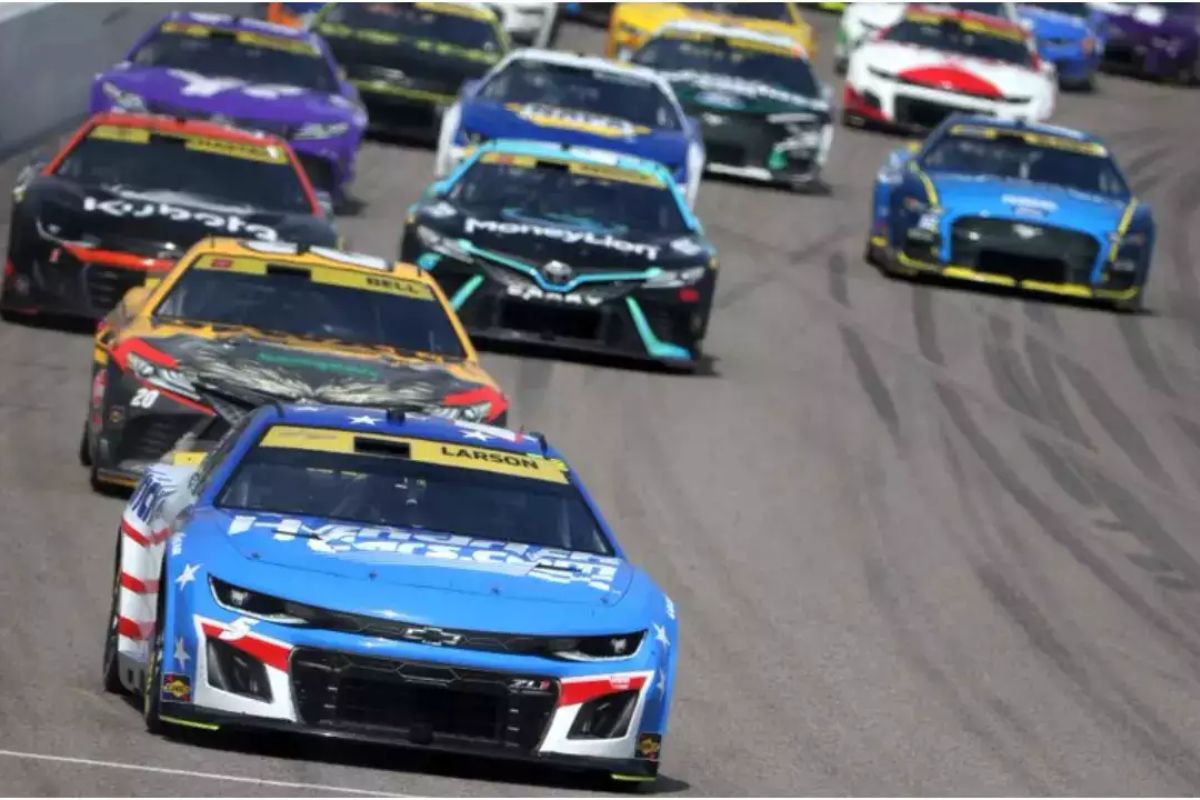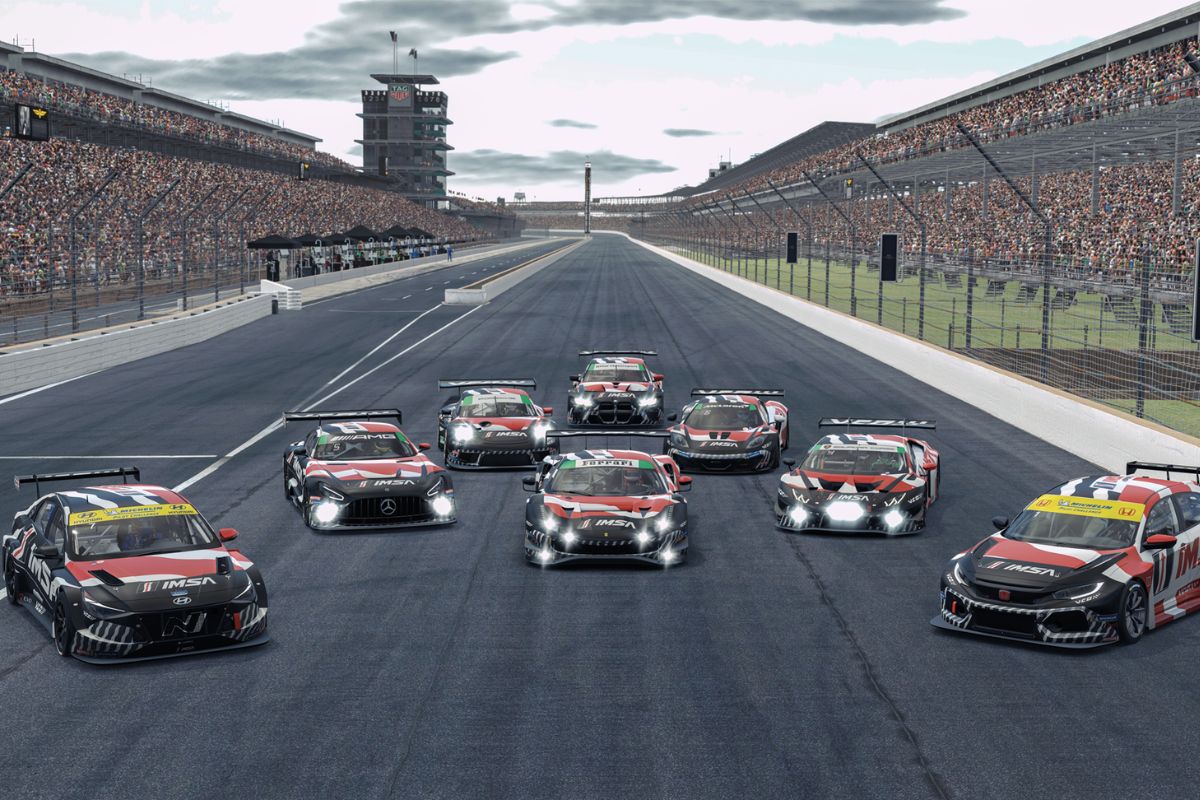Joe Gibbs Racing Xfinity Roster Set: Joe Gibbs Racing (JGR) is ready for significant changes in its Xfinity Series lineup as they gear up for the Pocono race, highlighting strategic pit crew swaps and possible adjustments within the team composition. By rotating lineups and considering a shift to a four-car team, JGR demonstrates a proactive strategy aimed at enhancing performance metrics and improving team efficiency. These changes are not just for immediate gains but show a deeper dedication to long-term competitiveness in the NASCAR Xfinity Series. What underlying factors are influencing these crucial decisions, and how might they impact JGR’s direction moving forward?
Key Highlights
- Joe Gibbs Racing to swap pit crews between #19 and #20 Toyota Supras starting with Pocono race.
- Chandler Smith and Sheldon Creed join JGR, driving #81 and #18 cars respectively.
- Rotational driver lineups for #19 and #20 cars to enhance adaptability and performance.
- Tyler Allen’s #20 crew, known for efficiency, takes over #19 car pit operations.
- Strategic pit crew swap aims to boost #19 car’s competitiveness and address #20 team’s controversies.
Joe Gibbs Racing’s Pit Crew Swap
In a strategic move positioned to impact the competitive landscape of the 2024 NASCAR Xfinity Series, Joe Gibbs Racing will implement a pit crew swap between the #19 and #20 Toyota Supras across four pivotal races, starting with the Explore the Pocono Mountains 225. This decision, as reported by Joseph Srigley of TobyChristie.com, is set to reverberate throughout the series, potentially altering the trajectory for the season’s most successful team in the next tier.
Tyler Allen, the race engineer behind Kyle Busch’s 2017 championship, will see his #20 crew take over the pit operations for the #19 car, currently managed by Seth Chavka, a former crew member for Austin Dillon at Richard Childress Racing (RCR). This exchange is planned for four crucial races, including Atlanta on September 7, and key playoff races at Kansas and Talladega, in addition to Pocono.
Analyzing the implications, this strategic shift could be seen as a bid to optimize performance under varying race conditions. Allen’s championship pedigree brings a wealth of experience to the #19 team, potentially enhancing their performance during playoff scenarios. Conversely, Chavka’s integration with the #20 crew could infuse new strategies and operational efficiencies, potentially strengthening their competitive edge.
JGR’s Statement and Team Dynamics
Joe Gibbs Racing (JGR) has expressed a commitment to utilizing its extensive resources to enhance both individual and team performance, as shown by their recent strategic pit crew swaps and the expansion to a four-car team for the 2024 NASCAR Xfinity Series season. A JGR spokesperson disclosed to TobyChristie.com that the team is seizing the opportunity provided by their ‘two all-star cars’ to encourage collaboration between veteran and young drivers, thereby boosting organizational synergy and overall efficiency.
“It is a unique situation where we have two all-star cars, so we have the opportunity for teams and drivers (both veteran and young drivers) to work with different groups within our organization…The goal is to simply utilize all our resources to optimize growth and performance across the program.” – Statement reads
JGR’s latest expansion includes the incorporation of Chandler Smith to the #81 Toyota, guided by experienced crew chief Jeff Mendeering, and Sheldon Creed in the #18. In contrast to these two cars, the #19 and #20 will not have permanent drivers but will instead adopt rotational lineups, showcasing a strategic move to optimize adaptability and driver development. This rotational system allows JGR to deploy a diverse array of driving talents throughout the season, ensuring that the team can react dynamically to varying race conditions and capitalize on the unique strengths of each driver.
The rotational lineup strategy aligns with JGR’s broader goal of utilizing all accessible resources to promote growth and performance. By enabling different drivers to collaborate with different groups within the organization, JGR is enhancing the versatility of its roster and fostering a culture of continuous improvement and learning.
Performance and Statistics of #20 and #19 Teams
While the strategic moves and rotational lineups are positioned to reshape Joe Gibbs Racing’s future, the recent performance and statistics of the #20 and #19 teams showcase both the successes and challenges faced by the organization in the 2024 NASCAR Xfinity Series season. The #20 team, driven by Tyler Allen and a group of talented racers including John Hunter Nemechek, Aric Almirola, Christopher Bell, and Ryan Truex, has been a guiding light of victory for Joe Gibbs Racing. With five race wins in the last 18 races, the #20 car has been a consistent contender at the front of the pack.
On the other hand, the #19 team under Seth Chavka’s guidance has seen more modest success. They have managed to secure two podium finishes, notably with Taylor Gray at Richmond and Ty Gibbs at the Loop 110 Xfinity Street Race. Despite these highlights, the #19 team’s overall performance has been less dominant compared to the #20, raising concerns about consistency and competitiveness.
Here is a comparative look at the performance metrics of the #20 and #19 teams:
| Metric | #20 Team (Tyler Allen & Others) | #19 Team (Seth Chavka) |
|---|---|---|
| Total Wins | 5 | 0 |
| Podium Finishes | 7 | 2 |
| Key Drivers | Allen, Nemechek, Almirola, Bell, Truex | Gray, Gibbs |
| Recent Highlights | Multiple wins in 2024 | Podium at Richmond, Loop 110 |
Strategic Reasons for the Crew Swap
The strategic decision to swap the #20 and #19 crews at Joe Gibbs Racing appears to be driven by a combination of performance improvement and the need to mitigate recent controversies surrounding the #20 team. This calculated move aims to bolster the overall competitiveness of their Xfinity series operations while also addressing public perception issues.
Firstly, the #20 crew has demonstrated superior performance metrics in recent races. By reallocating this high-performing team to the #19 car, Joe Gibbs Racing can potentially boost the performance of the #19 team, which may be underperforming. This reallocation strategy highlights the organization’s commitment to ensuring all their cars are competitive.
Secondly, the #20 team has been embroiled in controversies that have attracted unwanted scrutiny. By dispersing the crew members, Joe Gibbs Racing hopes to diffuse attention and foster a fresh start for the #20 car, thereby shielding it from further negative publicity. This approach is as much about optics as it is about performance.
Lastly, the timing of this crew swap ahead of Pocono presents a tactical advantage. Pocono Raceway, known for its unique triangular layout and challenging conditions, requires a high degree of synergy between drivers and their crews. By making the swap now, Joe Gibbs Racing aims to:
- Enhance the performance of the #19 car by leveraging the expertise of the #20 crew.
- Diminish the media spotlight on the #20 car by breaking up the controversial crew.
- Maximize team adaptability ahead of a challenging race, ensuring both cars are in top condition.
Drivers and Pit Crew Performance Metrics
Analyzing the performance metrics of drivers and pit crews provides crucial insights into the operational effectiveness and competitive edge of Joe Gibbs Racing‘s Xfinity Series teams. As the #19 and #20 cars prepare for the Pocono race, a closer look at their respective metrics reveals significant performance trends and areas for improvement.
Taylor Gray, a Truck Series regular, will be under the spotlight as he makes his eighth Xfinity outing driving the #19 car. This shift to the Xfinity Series is a pivotal phase in his career, requiring adaptation to different vehicle dynamics and heightened competition.
Meanwhile, Ryan Truex, known for his victory with the #20 team earlier this season, continues to display his expertise. His track record with Tyler Allen’s crew suggests a strong synergy, which will be crucial in upcoming races.
On the pit crew front, the #20 team has been outstanding, averaging the fourth-fastest pit stop times in the series. With an average of 15.070 seconds per stop, Allen’s crew demonstrates exceptional efficiency, a critical factor in race outcomes.
In contrast, Seth Chakva’s #19 team has a slightly slower average pit stop time, trailing by approximately 0.49 seconds. This seemingly minor difference can accumulate over the course of a race, potentially impacting the overall performance and standings.
The strategic implications of these metrics are significant, particularly as Joe Gibbs Racing navigates the challenges of the NASCAR Xfinity playoffs. The upcoming Explore the Pocono Mountains 225 will be a decisive test, highlighting the interplay between driver skill and pit crew efficiency in shaping competitive success.
News in Brief: Joe Gibbs Racing Xfinity Roster Set
Joe Gibbs Racing’s strategic adjustments ahead of the Pocono race highlight a dedication to maximizing team dynamics and efficiency. This forward-thinking strategy includes pit crew swaps and the expansion to a four-car team. These changes are aimed at boosting competitive performance in the NASCAR Xfinity Series.
By examining performance metrics and strategically rotating lineups, the team aims to improve race results and uphold a competitive advantage. This showcases a proactive approach in tackling the challenges of the upcoming race at Pocono.
ALSO READ: Joe Gibbs Racing’s New Recruit Reveals Emotional Ford Exit: ‘Super Hard’




